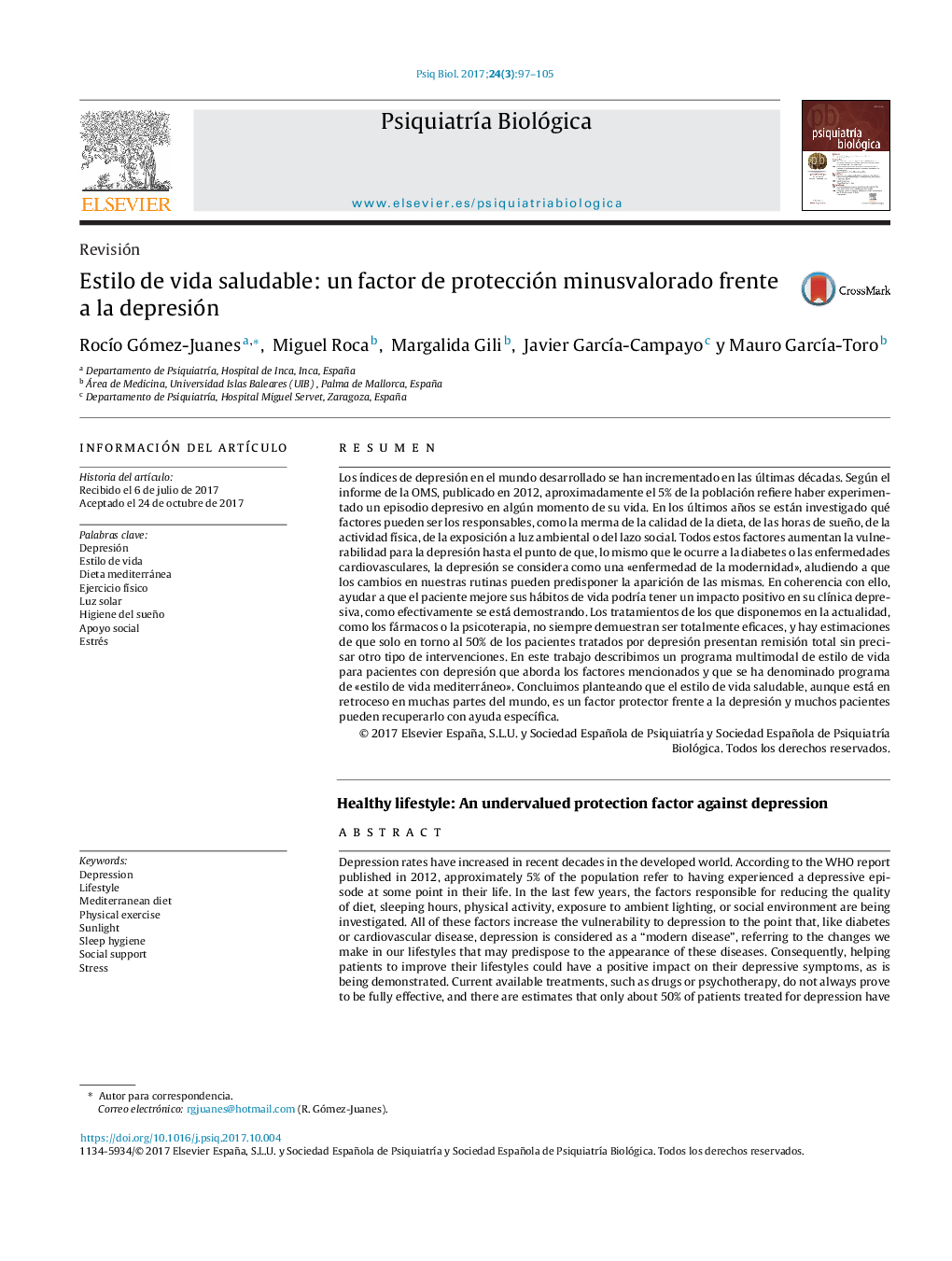| Article ID | Journal | Published Year | Pages | File Type |
|---|---|---|---|---|
| 8816124 | Psiquiatría Biológica | 2017 | 9 Pages |
Abstract
Depression rates have increased in recent decades in the developed world. According to the WHO report published in 2012, approximately 5% of the population refer to having experienced a depressive episode at some point in their life. In the last few years, the factors responsible for reducing the quality of diet, sleeping hours, physical activity, exposure to ambient lighting, or social environment are being investigated. All of these factors increase the vulnerability to depression to the point that, like diabetes or cardiovascular disease, depression is considered as a “modern disease”, referring to the changes we make in our lifestyles that may predispose to the appearance of these diseases. Consequently, helping patients to improve their lifestyles could have a positive impact on their depressive symptoms, as is being demonstrated. Current available treatments, such as drugs or psychotherapy, do not always prove to be fully effective, and there are estimates that only about 50% of patients treated for depression have total remission without requiring other interventions. In this paper, we describe a multimodal lifestyle program for patients with depression that addresses the above factors and has been labelled as the “Mediterranean lifestyle” program. It is concluded that healthy lifestyle (a regressive lifestyle in many parts of the world), is a protective factor against depression, and many patients can recover from it with specific help.
Keywords
Related Topics
Health Sciences
Medicine and Dentistry
Psychiatry and Mental Health
Authors
RocÃo Gómez-Juanes, Miguel Roca, Margalida Gili, Javier GarcÃa-Campayo, Mauro GarcÃa-Toro,
